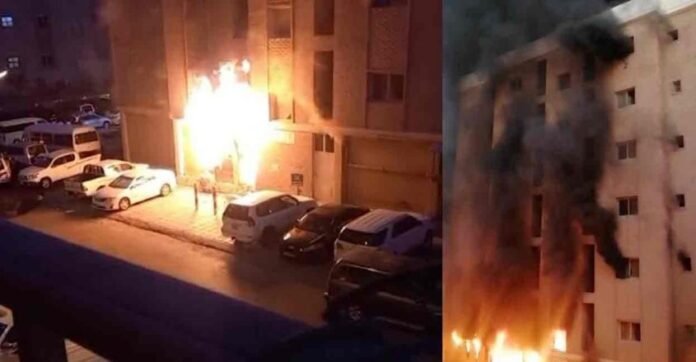On Thursday, the Department of Migrant Workers (DMW) in Mangaf, Kuwait, reported that three Filipino laborers died in a building fire.
“The unfortunate news is that the three are identified as fatalities in a hospital in Kuwait. We are in touch with the families of all affected OFWs (overseas Filipino workers), including those in the ICU (intensive care unit) and the three fatalities,” a spokesperson for DMW stated.
According to the Kuwaiti Interior Ministry, the fire that broke out at 4:30 a.m. claimed the lives of 49 persons. (Philippine time: 9:30 a.m.; Kuwait time: 0530), numerous others hurt. The majority of the victims were citizens of India.
Prior to the official death toll, DMW reported that the fire that destroyed the apartment building housing 195 employees of the same company had injured 11 Filipinos.
The DMW stated that while three of the Filipinos are now safe, the other three are receiving medical attention for their wounds at a hospital, two of them are in critical condition.
As of right now, the situation regarding the remaining five Filipinos is “still pending confirmation from hospital authorities” in Kuwait.
According to Kuwaiti officials, the six-story building’s kitchen caught fire first, swiftly spreading throughout the flat.
The victims passed away from smoke inhalation while they were asleep, according to Kuwait’s Interior Ministry.
According to local news reports, Kuwait’s history’s worst building fire was the one that occurred in Mangaf.
The Emir of Kuwait, Sheikh Mishal Al-Ahmad Al-Jaber Al-Sabah, has vowed to hold those involved accountable and has ordered an immediate investigation into the occurrence.
Arnell Ignacio, administrator of the Overseas Workers Welfare Administration (OWWA), gave the Kuwaiti welfare office instructions to tend to the victims’ immediate needs.
“The OWWA staff in Kuwait are looking into the condition of the three Filipinos in the hospital so that the victims can immediately receive the necessary assistance. OWWA has also spoken to the three Filipinos’ relatives here in the Philippines to ensure their needs are met during this time,” Ignacio said in Filipino.




